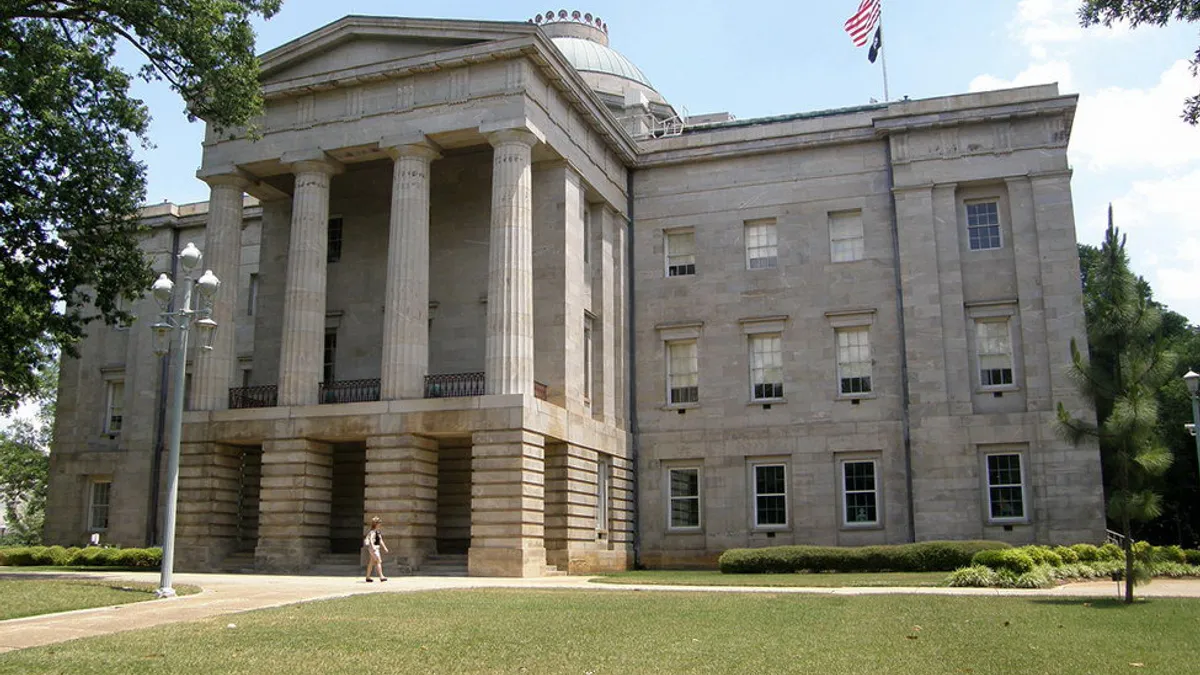Dive Brief:
- A three-judge panel ruled that a new law giving North Carolina’s elected state superintendent, Mark Johnson, more day-to-day authority over how schools run in the state is constitutional, Education Week reports.
- The new law, which shifts responsibilities away from the governor-appointed State Board of Education, was enacted by the Republican-controlled General Assembly shortly before the inauguration of Democratic Gov. Roy Cooper, and it is the latest in a long series of battles over who should control the state’s schools
- The Board of Education argued the state's Constitution put decision-making power in its hands, with the superintendent being the board’s “secretary and chief administrative officer,” but the judges believed the new law was not in violation since the superintendent is still subject to board oversight.
Dive Insight:
The changing political landscape, and the increase in state legislators more inclined to push for conservative reforms in education policy and school choice options, make the immediate future uncertain for education officials and district leaders trying to understand what sort of oversight to expect. There have been recent instances of lawmakers making political statements through bills aimed at higher ed administrations, with recent standouts including a spate of bills concerning "free speech zones" and harsher disciplinary measures for those protesting or interrupting campus speakers.
Education officials and district leaders should try to advocate for stability in regulatory oversight. Of particular concern when it comes to the politicization of school boards and superintendent positions is the potential for oversight to become increasingly subject to the whims of political climate with each election, adding an additional layer of instability to school systems that often must contend with sparse resources and high levels of teacher turnover. The nation's increased polarization has made this even more difficult to avoid than ever. However, if politics threatens to damage the stability of long-accepted forms of regulatory oversight, district and school leaders can try to sway stakeholders in the other direction while ensuring they remain up-to-date on how they are to be assessed by regulators.






 Dive Awards
Dive Awards






